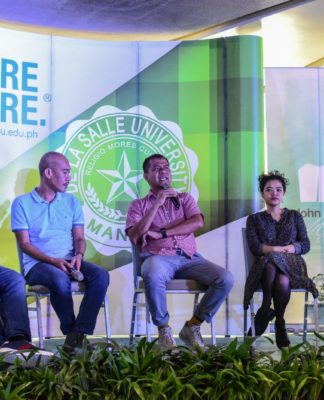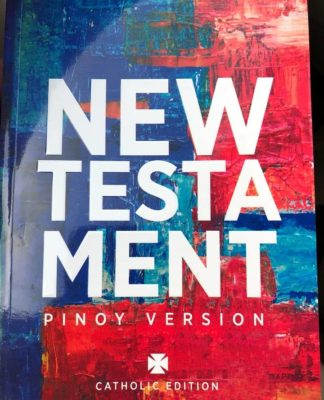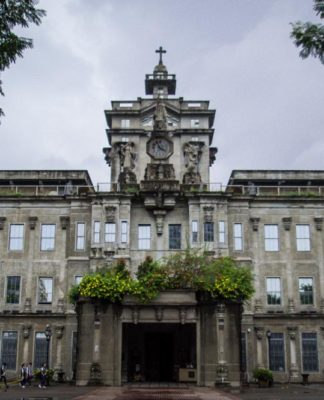LIKE fine wine, something of age takes years to refine its quality.
Now on its 50th year, the Faculty of Arts and Letters (Artlets) continues to uphold the Thomasian understanding and command of the arts, media, literature and the social sciences.
“A milestone is always marked in all aspects. For me, it is a testament that we stand unhindered to continue its mission and vision,” said Alfredo Navarro III, vice-president internal of the Artlets student council.
But many still do not know the rich history behind the premier liberal arts college in the country.
It has been the training ground of the most creative and competent individuals who continue to excel in their different careers.
Some of its most prominent alumni include National Artists for Literature F. Sionil Jose, who is a former Editor in Chief of the Varsitarian, Nicomedes “Nick” Joaquin and Bienvenido Lumbera.
Other literature greats include famous nonfiction writer and literary critic Cirilo F. Bautista, Carlos Palanca Awardees Rebecca T. Añonuevo, Michael Coroza, Jose Wendell Capili, Rodolfo “Jun” Lana, Ponciano Pineda, Alejandro Abadilla, former Artlets dean and fictionist Ophelia Alcantara-Dimalanta, and former Commissioner on Filipino Language Jose Villa Panganiban, who is the founder of the Varsitarian.
In the field of legal practice, some of their esteemed alumni are Nilo Divina, current dean of the Faculty of Civil Law, Alfredo Benipayo, former court administrator of the Supreme Court and former Chief Justice Andres Narvasa.
Award-winning field and investigative reporters Sandra Aguinaldo, Cesar Apolinario, and Arnold Clavio are also part of its roster. Adding to the list are filmmaker Gil Portes, TV hosts Julie Yap-Daza, Rowena “Winnie” Cordero, and Butch Francisco.
In the field of journalism, Artlets’ prominent alumni are Philippine Daily Inquirer founder Eugenia Duran-Apostol, former New York Times correspondent Alice Colet-Villadolid, and Palanca awardee essayist, columnist, journalist and film critic Joselito Zulueta.
Currently led by Dean Michael Anthony Vasco Ph.D., the roster just keeps on growing as the institution continues to promote quality education on humanities and social sciences.
Noble history
The Faculty of Arts and Letters was founded in 1964, having undergone tremendous changes in the late 19th century.
The University, since its historic founding in 1611 as the Colegio de Nuestra Señora del Santisimo Rosario, has been teaching liberal arts and philosophy.
But the first institution of the University to have taught the humanities and philosophy was the Faculty of Philosophy.
Originally, the faculty’s courses were only offered to people entering the priesthood.
In 1896, the college’s curriculum was expanded and eventually, the 285-year old institution was renamed the Faculty of Philosophy and Letters, known as the “Philets.”
Philets was the prime institution of the country in both the liberal arts and philosophy that time, pioneering the three original courses of the Faculty of Philosophy and Letters—theology, arts and humanities, and philosophy.
In 1926, the College of Liberal Arts, now the College of Science, was established with baccalaureate which offered two undergraduate degrees: Bachelor of Science and Bachelor of Arts. These were prerequisites in pursuing a diploma in Medicine and Jurisprudence.
In 1964, the two institutions, the Faculty of Philosophy and Letters and the College of Liberal Arts, were merged to create Faculty of Arts and Letters.
Only three courses were offered then: Bachelor of Arts, Bachelor of Literature, and Bachelor of Philosophy. In 1971, Economics, Liberal Arts-Commerce (now known as Behavioral Sciences), Journalism, Communication Arts, Philosophy, Political Science, Sociology and the defunct Major in Translation were included. Legal Management added in 1994 for students who want to take up jurisprudence as post-graduate studies. Alfredo N. Mendoza V















